At Ukraine Front, Embattled Bakhmut Residents Desperate For Water
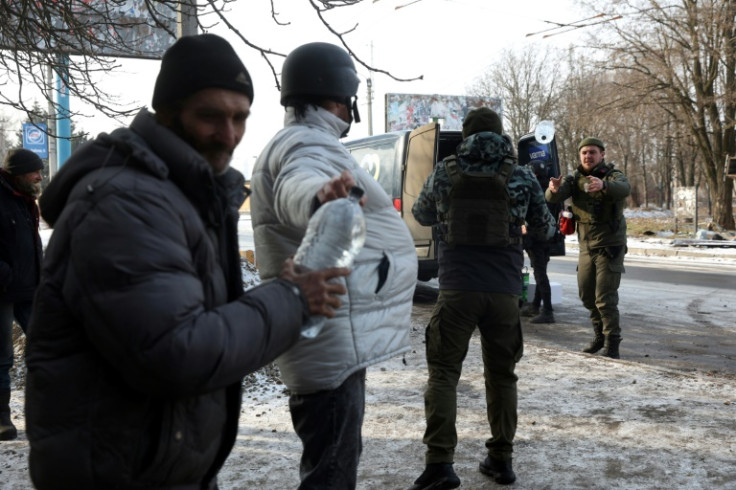
First Valentyna's gas was cut when Russia's invasion came to Bakhmut in Ukraine's Donetsk region. Then shelling destroyed power lines. By August, she and her daughter Natalia no longer had water.
As fighting intensified -- making the battle for the city the longest and most grinding of the nearly year-long war -- the pair replaced gas and electricity with wood and coal.
But when it became too dangerous to reach the well in their eastern neighbourhood, which has seen some of the worst fighting, they finally undertook the treacherous journey across the Bakhmutovka river to flee the besieged city.
"A week ago it was possible to live there, but not anymore," said Natalia, 52, as she and her 73-year-old mother waited at a humanitarian hub to be evacuated.
They are just two among some 8,000 Bakhmut residents whose precarious existence in the city has been thrown into even greater uncertainty since water supplies were fully cut in October.
The city, which had a population of 70,000 before the war, had been battling to keep water flowing since March, when shelling knocked out a canal that was one of the main sources, along with two wells.
Authorities tried to repair power lines key to pumping water into treatment plants and tanks or employ workarounds, but efforts stalled as shelling mounted.
"Drinking water is now supplied to the city entirely by volunteers," deputy head of the Bakhmut military administration Oleksandr Marchenko, told AFP.
At one humanitarian hub last week, a line of volunteers passed a nearly endless stream of multi-litre bottles of water into the space packed with residents huddled on benches and holding steaming cups of tea.
The fire brigade distributes water for other needs and there are scattered private wells, but residents also resort to gathering water from places it collects in the street, Marchenko added.
It's a safer option than risking the river, which bisects the city and is now a key dividing line in the fighting.
Before Svitlana moved across the river with her husband and five-year-old son, they crossed a ruined bridge under heavy shelling several times to fetch water, once lugging back 36 litres and rationing it for a week.
"We have not had water since early in the war," the 38-year-old said, watching her son play in the boxing ring-cum-play area in the shelter opened by the organisation Unity of People.
Sand bags are piled against the windows and the air is thick in the warm, busy former boxing gym.
"My dream is to take a shower," Svitlana said, miming the hand sanitiser and towelettes bathing routine she's relied on for months.
That dream may be closer than she thinks.
Even as Russian forces report small gains towards Bakhmut, volunteers are working to drill a well at the bottom of the building, with another part transformed to house new shower stalls and washing machines.
Ruslan Khublo, 33, studied engineering and responded to a call on Instagram for help on the project.
Volunteers joked over a blaring radio as they fitted pipes in the basement space when AFP made a recent visit.
But outside, the thud and crack of bombardment was pervasive. Just that morning a shell exploded nearby, killing at least one person.
Khublo, whose hometown of Olenivka is occupied by Russian forces, wasn't deterred.
"We don't know if Bakhmut will be captured or not, but the people who live here need help," he said.
"There are people who haven't washed for more than two months."
The work could also improve the state of the hub's toilet, a boon for residents who have been using a pot in basement shelters or discarding waste in the street.
Yevdokha Golub, 80, trudges to the hub regularly for a few litres of water in part to flush the toilet she shares with four others.
"It's very hard," she said, before manoeuvering the heavy bottle down uneven steps.
The hub's 500-litre tank is refilled daily by volunteers or the fire brigade, which has become a key distributor around the city.
It carries around five tonnes of water per day from a pond to humanitarian and medical centres, according to one firefighter, who did not give his name.
But that system is under pressure as the brigade has to refill trucks often to not only provide water, but also contend with the fires sparked by shelling.
Olga and Mykalo watched helplessly last week as their apartment burned down, firefighters having run out of water as they fought the blaze before racing to the pond for more.
They did come back, said 70-year-old Olga, "but then so did the shelling, so they left".
At a building across from the fire station, Anatoliy Beztalanny, 48, stood next to another drill boring into wet earth.
Protestant charity Hands to Help provided materials for two wells and Beztalanny had volunteered with some others to take on the project.
Having turned his life around from addiction, he said he feels a sense of duty to help others in need.
"We know that there is enough food here, but there is a problem with hygiene and water," he said, his cheeks spattered with mud.
Thirty-seven metres down, their progress was blocked by a layer of rock, so the volunteers headed back to Kyiv to find something to push through.
They'll be back though, despite the constant threat of death or injury.
"God helped me, so I want to give something back," he said.
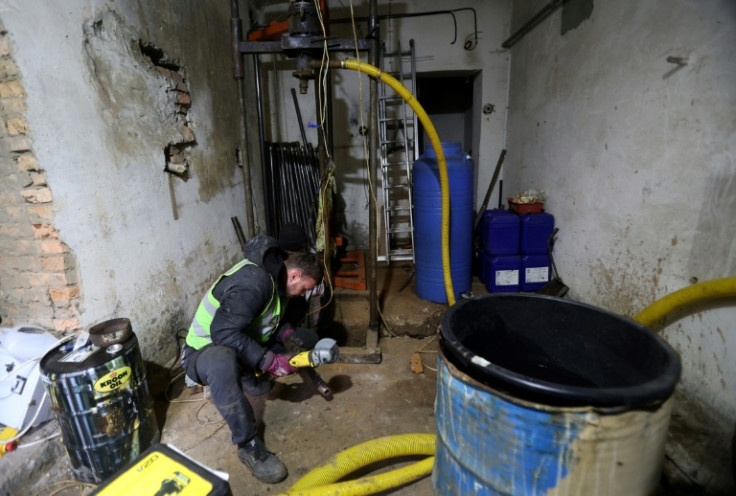
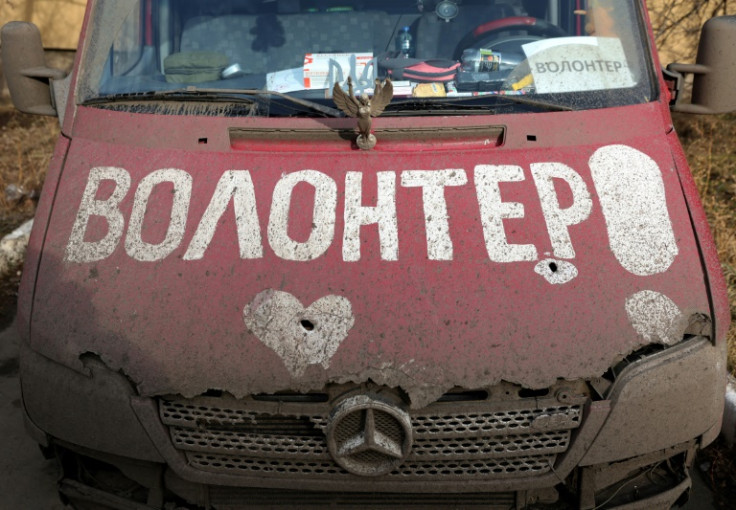
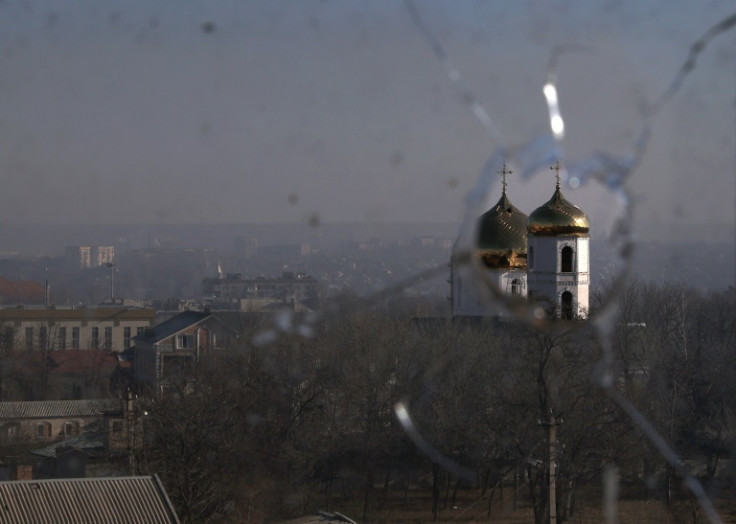

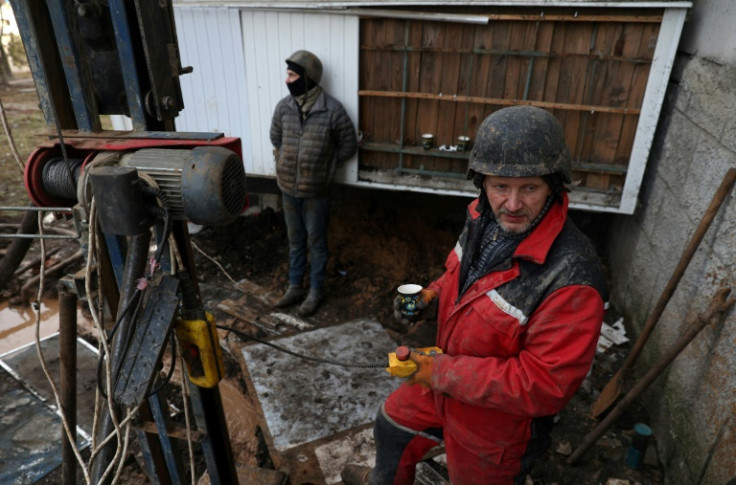
© Copyright AFP {{Year}}. All rights reserved.





















